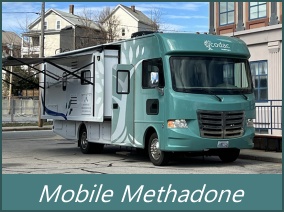 Historically, access to methadone for the treatment of opioid addiction has been through enrollment in a local clinic licensed to dispense methadone. As a result of Covid restrictions, some of these clinic regulations were relaxed. For example, many patients across the U.S. were allowed to begin receiving take home doses of methadone as a result of Covid lockdowns and decreased clinic access.
Historically, access to methadone for the treatment of opioid addiction has been through enrollment in a local clinic licensed to dispense methadone. As a result of Covid restrictions, some of these clinic regulations were relaxed. For example, many patients across the U.S. were allowed to begin receiving take home doses of methadone as a result of Covid lockdowns and decreased clinic access.
Critics have begun to express the belief that clinic restrictions are cumbersome and that methadone should be made available for pick-up at local pharmacies. On the other hand, the concern remains that methadone can be misdirected or mishandled thus reinforcing the need for close supervision, particularly in the early phases of opioid treatment. Decades of research has shown that taken under proper supervision, methadone’s safety profile is excellent.
In this recent era of contaminated street opiates and overdose concerns, it is clear that methadone is a phenomenally effective medication for promoting health, well-being, and physical safety.
Mark Parrino, president of the American Association for the Treatment of Opioid Dependence, recently shared that deregulation of methadone would likely increase the diversion of methadone and methadone-related overdose deaths.
Following a period of stability, most U.S. clinics do allow patients to begin dosing at home with methadone. This system of care is working well throughout the country where methadone is readily available. However, many U.S. citizens are still lengthy distances from methadone-approved clinics. So, the challenge continues to link those with opioid addiction to effective resources in their local community. Legislators are presently examining a range of options as the opioid epidemic marches on.

 Follow
Follow

 Counseling and support services are an integral part of the treatment process. Recovery from opioid addiction involves education on the addictive process and the development of skills that support lifestyle change.
Counseling and support services are an integral part of the treatment process. Recovery from opioid addiction involves education on the addictive process and the development of skills that support lifestyle change.  Several articles recently addressed a study which found that providing buprenorphine after an overdose significantly increased the likelihood of individuals accessing opioid use disorder (OUD) treatment.
Several articles recently addressed a study which found that providing buprenorphine after an overdose significantly increased the likelihood of individuals accessing opioid use disorder (OUD) treatment. Providence, Rhode Island is the first location in the United States to offer a mobile methadone service. This
Providence, Rhode Island is the first location in the United States to offer a mobile methadone service. This 



